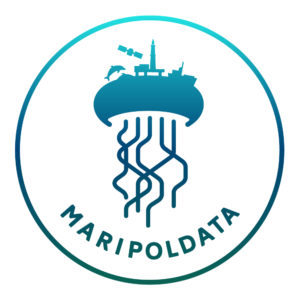2 PhD Positions/Prae-Docs within the ERC Project MARIPOLDATA
At the Faculty of Social Sciences (Department of Political Science) of the University of Vienna 2 PhD positions within the ERC Project MARIPOLDATA are vacant. Applications should be sent electronically to maripoldata.erc@univie.ac.at by 3rd of February 2019.
Overview:
The successful candidates will work in an interdisciplinary research team under the supervision of Dr Alice Vadrot. The role of the research assistant arises from the award of a 1.4 Mio Euro Starting Grant from the European Research Council to Dr Vadrot, Principal Investigator of the project hosted by the Department of Political Science of the University of Vienna. The grant is for a major research project on “The Politics of Marine Biodiversity Data: Global and National Policies and Practices of Monitoring the Oceans (MARIPOLDATA)” running from November 2018 to October 2023. The project will bring together an interdisciplinary team composed of the PI, the research assistant, 2 PhD students, 2 Post-Docs and 2 master students.
Role of the successful Candidates:
The successful candidates will have a background in Political Science, the Social Study of Science, Sociology or a related field with a focus on: international negotiations, multilateral environmental agreements, ocean governance, science diplomacy or science-policy interrelations. The successful candidates will mainly be involved in studying the role of science and data in international negotiations related to the protection and use of marine biodiversity. PhD students will be expected to do participant observation at international negotiations related to: 1) the Convention on Biological Diversity (CBD) and its Subsidiary Body of Scientific and Technical Advice (SBSTTA) and 2) the United Nation Convention on the Law of the Sea (UNCLOS) and the new legally binding treaty on Marine Biodiversity Beyond National Jurisdiction (BBNJ).
The PhD students will have experience in and/or the willingness to learn new methods of participant observation and collaborative event ethnography. They will contribute to the further development of concepts and methods to study the role of science and data in global environmental politics and closely work with the PI and other team members. This is an exciting opportunity for graduate students to develop research experience, working with senior colleagues on a new ERC funded project and work on a PhD thesis in the rapidly emerging and increasingly relevant area of marine policy and politics
Duration of Employment: 3 years 30.00 hours/week
Salary (gross): Job grading in accordance with collective bargaining agreement §48 VwGr. B1 Grundstufe (praedoc)
Expecting starting date: 1st March 2019
Application:
Applications should be sent electronically in English to maripoldata.erc@univie.ac.at by 3rd of February 2019.
Please find further information about the application requirements in the following PDF file
Selection & Next Steps:
Following the closing date, we will contact you by email to let you know whether or not you have been shortlisted to participate in the next stage of the selection process.Interviews will be held between 11th and 13th of February 2019.
For inquiries about the application process, please contact: maripoldata.erc@univie.ac.at
For informal enquiries about the job, please contact Dr Alice Vadrot: alice.vadrot@univie.ac.at.
The University of Vienna intends to increase the number of women on its faculty, particularly in high-level positions, and therefore specifically invites applications by women. Among equally qualified applicants women will receive preferential consideration.
About the Project:
In order to protect marine biodiversity and ensure that benefits are equally shared, the UN General Assembly has decided to develop a new legally binding treaty under the United Nations Convention on the Law of the Sea. Marine biodiversity data will play a central role: Firstly, in supporting intergovernmental efforts to identify, protect and monitor marine biodiversity. Secondly, in informing governments interested in particular aspects of marine biodiversity, including its economic use and its contribution to biosecurity. In examining how this data are represented and used, this project will create a novel understanding of the materiality of science-policy interrelations in global environmental politics as well as develop the methodologies to do so. This is crucial, because the capacities to develop and use data infrastructures are unequally distributed among countries and global initiatives for data sharing are significantly challenged by conflicting perceptions of who benefits from marine biodiversity research.
The central objective of MARIPOLDATA is to develop and apply a new multiscale methodology for grounding the analysis of science-policy interrelations in empirical research. An interdisciplinary team, led by the PI, will collect and analyse data across different policy-levels and spatial scales by combining 1) ethnographic studies at intergovernmental negotiation sites with 2) a comparative analysis of national marine biodiversity monitoring policies and practices and 3) bibliometric and network analyses and oral history interviews for mapping the field of marine biodiversity science.